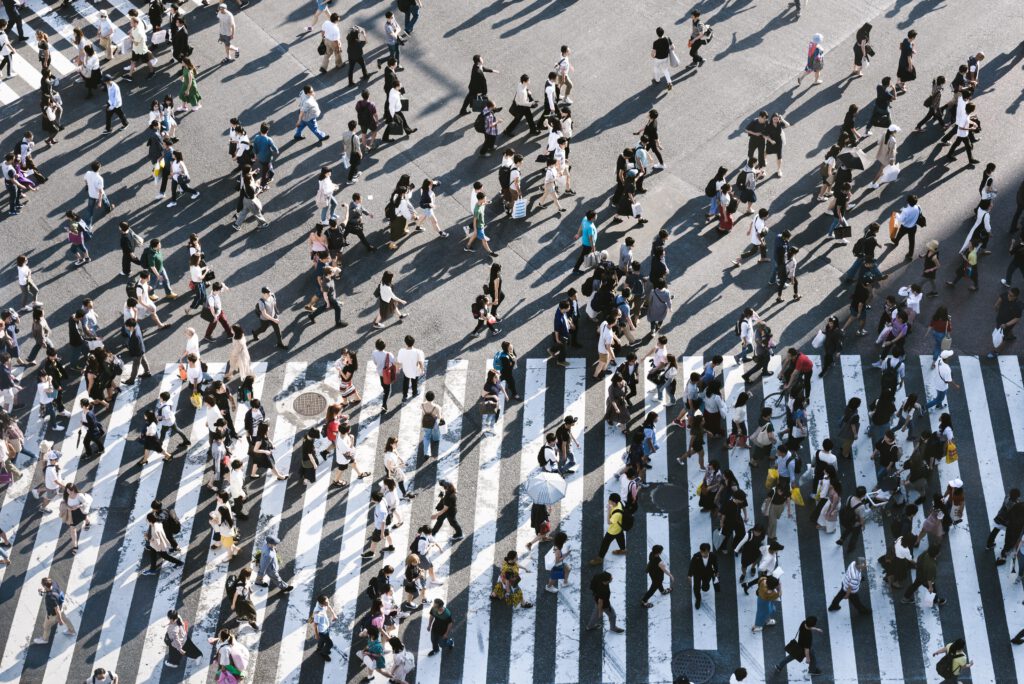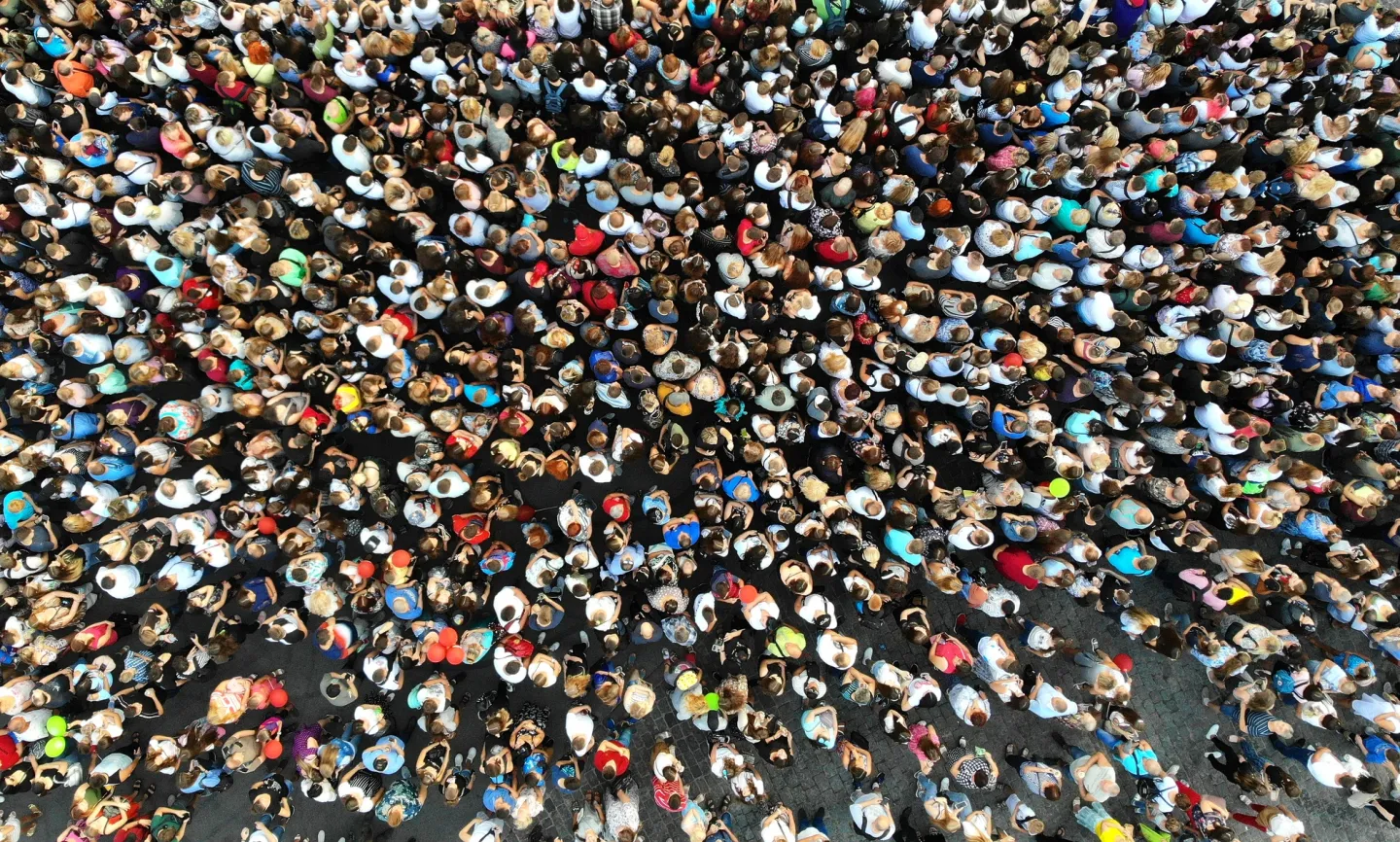
In the year 2100, it is estimated that there will be 10 billion people on earth. At this moment, we are already using the earth’s full capacity of water usage and resources. CO2 emissions are rising exponentially, and so is plastic production. The differences between the rich and poor are still increasing. The earth is not able to sustain human life if everyone lives like a “Westerner”. Are we able to share and become less egocentric?
“Only when the last tree has died
And the last river has been poisoned
And the last fish has been caught
Will we realize that we cannot eat money.” – Cree Indian proverb
It is a well-known fact that water and food are the basis of all civilizations, as is nicely summarised in the statement: “There are only seven missed meals between order and chaos.” The depletion of one of these sources has been the end of many past civilizations. Our current water and food consumption draw heavy on the Earth. The huge quantities of water and food – and also energy – used for human consumption have a major impact on the environment, also known as ‘footprint’.
The two biggest problems are our water- and carbon footprint. Although the carbon crisis could ‘easily’ be solved by techniques such as green energy, it is different for the water scarcity.
We use too much water for our clothes, food, and industrial products, and we can’t simply ‘make’ new water. The only option to use less water is to eat less meat, consume fewer clothes, and consume fewer industrial products. In other words, to let go of some of our luxuries.
“There’s enough for everybody’s need, but not for everybody’s greed.”
In the west, we strive for economic growth. Even the richest countries are still aiming for economic growth of 1.5% per year. But if our economy grows 1.5% for 30 years, while the population remains stable, everyone gets wealthier by 50%. Which is exactly what happened in the past 30 years. Sadly enough, this prosperity is not evenly distributed over the planet. While Europeans and North Americans earn between 2,000 and 3,000 euros on average a month, people in Africa and Asia have to deal with 200-500 euros a month.
Given the shortage of water and the biodiversity crisis, the question is how much growth in prosperity the Earth can bear. If everyone wants to be just as rich as we are in the west, the capacity of the Earth will be overburdened. Theoretically, there may be room for 10 billion people, but not for 10 billion ‘rich’ people.
All this wealth leads to waste: we throw away as much as 30% of our food. What will our life look like if we grow 50% wealthier? Will we throw away 70% of our food? What will more wealth mean in the future? Are we all going to buy robots? Are we all going to automate our homes? Is all this really worth it to risk an unprecedented environmental crisis?
Animal welfare has not improved in the last 50 years. Apparently, we can no longer afford better conditions for chickens, despite the enormous increase in our wealth. When we were poor, chickens were allowed to roam freely on farms. Now that we are rich, 150 million chickens per year are bred and slaughtered industrially in The Netherlands alone. What’s wrong with this picture?
Don’t we need economic growth to solve poverty in the rich countries, because even in the richest countries more than 10% of the population has to live in poverty? No. It is not the lack of wealth that causes poverty, considering we are talking about the richest countries in the world. Becoming even richer will not solve the poverty in these countries, as it is clear by now that the increase in wealth doesn’t reach the poor and will mainly go to the rich side of society.
The will to share?
We continue to focus heavily on the economic growth of the richest countries and we cling to innovations to save us. It is often claimed that more money is needed to save the jungles and the environment. That seems strange and not compatible with the fact that in the last 100 years, in which humanity has become 25 times as rich, all problems have grown in size. Wealth and waste seem to be the cause of the problems rather than the solution.
There seems to be an egocentric, narcissistic attitude in the west (and in other prospering regions in the world). People want to focus primarily on their own comfort and luxury and do not care much about what that does to others.
Could such narcissistic and indifferent behavior be caused by the idea that we were created by pure chance in an immense universe, whose train of thought is prevalent in Western cultures and has nestled in our minds? In other words: if life does not make sense and there is no afterlife, what does it matter how we live? In that case, we might as well live selfishly.
How do we rid ourselves of the narcissistic pursuit of wealth alone, which leads to an environmental crisis that will affect the poorest in particular? Wouldn’t it be great if we realise that more consciousness would be a better goal and more rewarding than trying to accumulate more wealth since obviously getting richer is also the cause of several fundamental problems?
Think less about yourself, and more about others. Think twice about what your actions may cause to others and to the environment. Eat less meat so you will save water. Buy fewer clothes so you will save water. Be less obsessed with upgrading your technology, and be happy with what you have. The never-ending race for upgrades and wealth is bringing nothing but harm and unhappiness. Consuming less means less money spent, which means less work and less stress.
Be okay with less. Because if we are okay with a bit less, the rest of the world can have a bit more.

